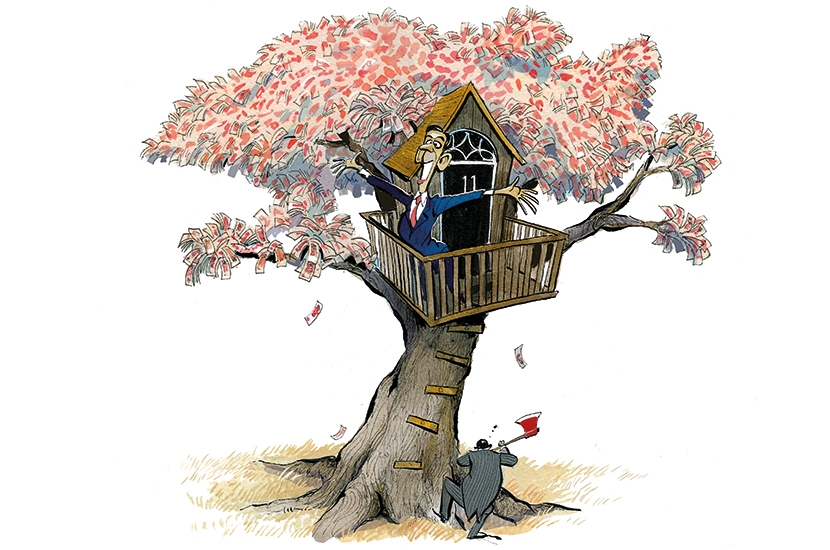Finally it seems to be dawning on many Conservative MPs that abolishing – or seriously cutting – inheritance tax at the same time as jacking up income tax for millions of low earners is not a great way to tackle a strong Labour lead in the polls. Several backbenchers have written to the Prime Minister in response to reports that he is considering taking the axe to inheritance tax in the Budget on 6 March. They have suggested that the government should be cutting income tax instead, or at least raising the thresholds which have been frozen until 2028. At a time of elevated inflation, that is dragging millions more into income tax, and into the upper rates of income tax, by the year.
If and when we are to have tax cuts, another focus should be on National Insurance – which is really just income tax by another name, albeit one that targets only earned incomes, not income from investments. The Chancellor did cut NI in the autumn statement, but it would be a big vote-winner if he committed to the phasing-out of NI altogether, as and when it can be afforded. Why can’t we simply tax everything the same, whether it be earned income, unearned income, capital gains, inheritance or anything else?
But there is a big danger in the Conservatives having a debate solely over which taxes to cut. Announcing tax cuts without corresponding spending cuts against the current fiscal background feeds the narrative that the Conservatives have become a party which is reckless about public finances. The Office of Budgetary Responsibility (OBR) expects government borrowing to finish this tax year at £124 billion, with the government having to spend over £100 billion just to pay the interest on its debts.
The subject of spending cuts seems to have disappeared
We have a deficit that is still in the same league as the one which Gordon Brown left behind in 2010. The Conservatives, in the election of that year, made a priority of tackling the deficit, as did the Lib Dems – a promise which, initially at least, they seemed to stick to when they formed the coalition. Around four fifths of the readjustment in the public finances made by George Osborne came from spending cuts and a fifth from tax rises. It proved to be a vote-winner: when David Cameron won an unexpected outright majority in 2015, Labour’s own Jon Cruddas concluded that the Conservatives had won not in spite of ‘austerity’ but because of it. Voters actually wanted to government to get on top of public finances, and punished Ed Miliband for attacking its efforts to do so. No, voters were saying, the spending cuts were not ‘ideological’ – they were a necessity given how Brown had lost control of public spending.
Yet the subject of spending cuts seems to have disappeared. All we seem to be talking about instead is tax cuts. I have a feeling that, once more, that the public are going to be left unimpressed by the assertion that Britain can carry on living beyond it means. They might be more impressed by a determination to balance the public books – something no government of any colour has managed in the past 22 years.







Comments